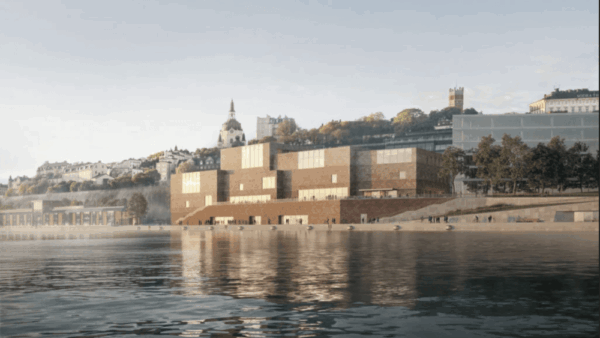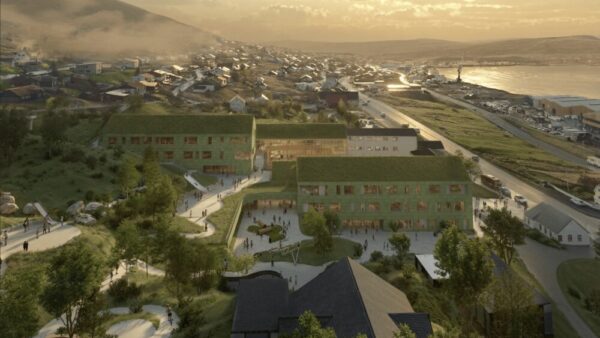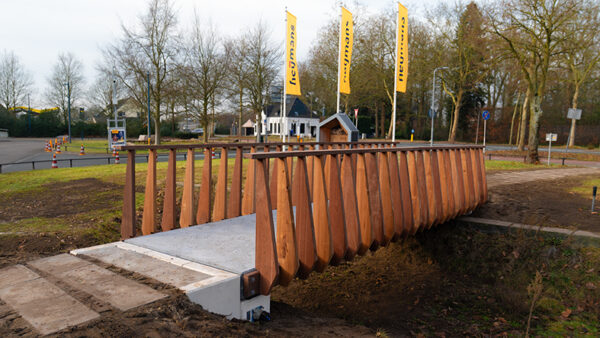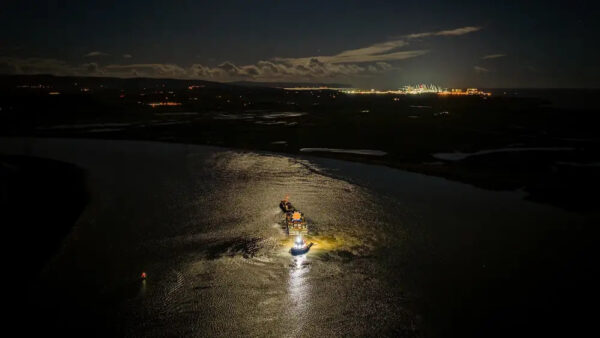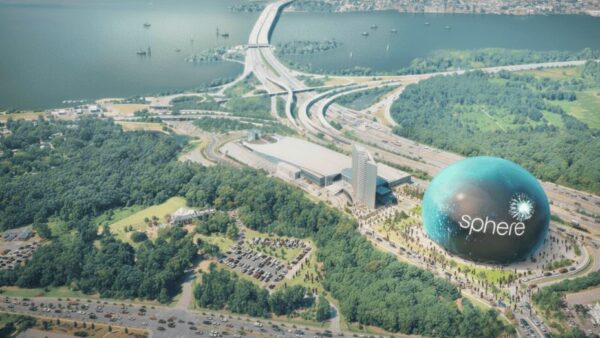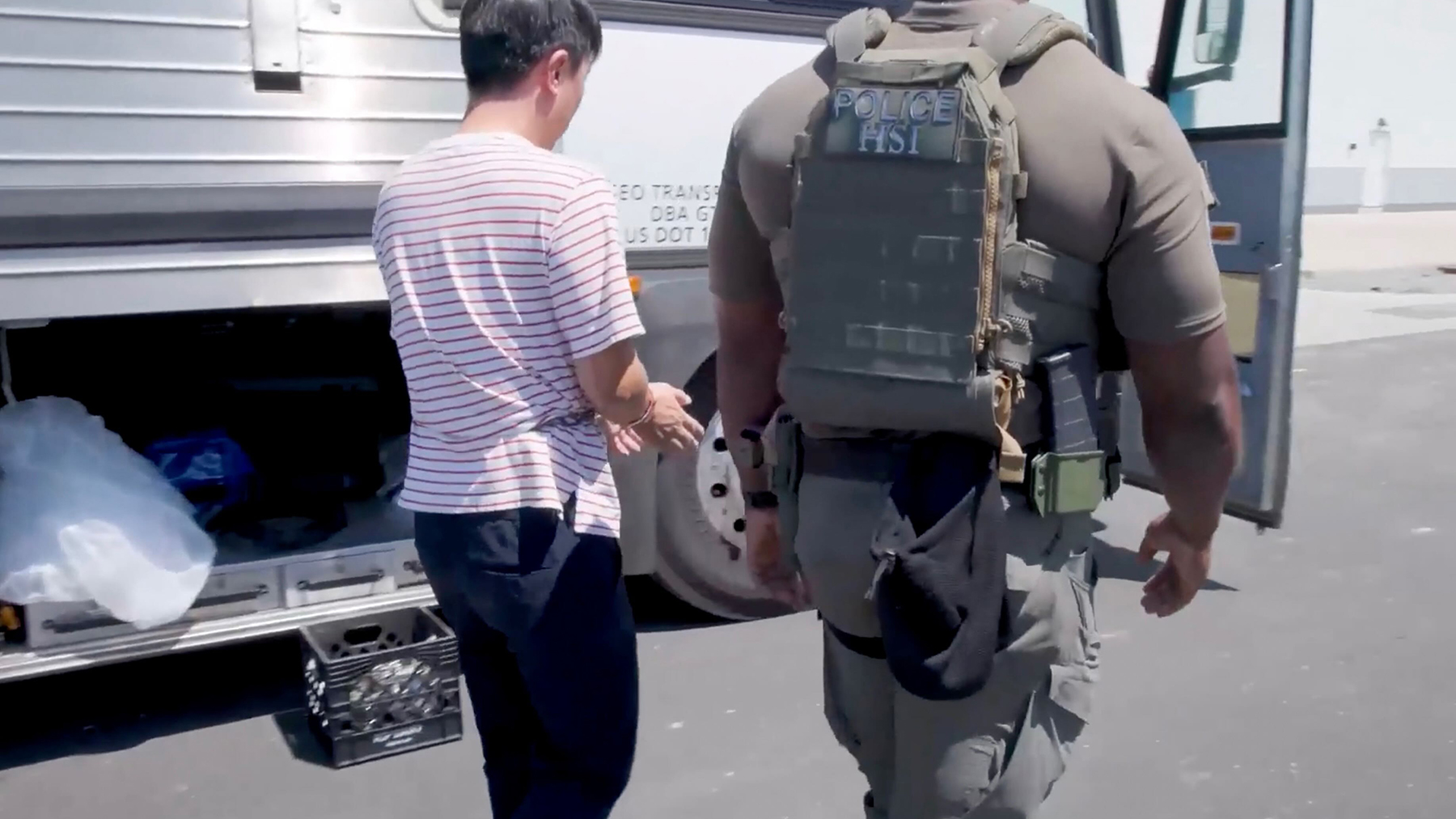
US diplomacy appeared to be in disarray today as families of 300 South Korean nationals detained in a massive immigration raid on a construction site in Georgia learned they would not be flying home today as expected.
South Korean foreign minister Cho Hyun flew to Washington DC on Monday night for talks with US secretary of state Marco Rubio yesterday, but Rubio did not make time to meet him during a day that saw Israel conduct a bombing raid on Qatar.
“The planned departure of our nationals in Georgia became difficult due to US circumstances,” the South Korean foreign ministry said in a message to reporters while giving no further details, the Yonhap News Agency reported this morning.
“We are continuing talks with the US side to enable an early departure as soon as possible,” the message ended.
A chartered South Korean Boeing 747 took off for Atlanta early today to take the detained Koreans home, but it will have to wait.
No charges yet
The emergency ensued last Thursday when US Immigration and Customs Enforcement (ICE) and other federal agencies raided a $4.3bn under-construction EV battery factory being developed by a joint venture of South Korea’s Hyundai Motor and LG Energy Solution near Savannah.
Officers arrested and detained 475 people working at the site, including the Koreans.
ICE claimed all were working illegally, but has yet to announce any charges.
A lawyer in Atlanta representing seven South Korean staff and five others detained told GCR yesterday that his clients had the correct visas and that ICE had violated federal law in detaining them.
Trade deal deadlock
The crisis erupted just as US and South Korean officials are negotiating the details of a trade deal that would see South Korea hand over $350bn to the US in return for the imposition of tariffs at 15% instead of President Trump’s threatened 25%.
The outline of the deal was announced at the end of July, but South Korea has yet to sign it because of concerns over the impact its $350bn handover would have on the domestic dollar-won exchange market, Reuters reports.
The ICE raid also came nine days after Hyundai Motor pledged to spend $26bn in the US on steel, automotive and robotics manufacturing between now and 2028.
Raids on construction sites to find illegal workers have become common in President Trump’s first year in office, but this raid in particular is unprecedented and directly contradicts his goal of getting manufacturers to build high-tech plants in the US.
The raid as it happened:
Between a rock and a hard place
Manufacturers like Hyundai and LG are caught between a rock and a hard place over visas for Koreans.
They need to build sophisticated factories fast, but a sufficiently skilled local workforce isn’t always available in the US, where manufacturing has been in decline for decades.
Charles Kuck, the lawyer representing detainees, also pointed out that the assembly line equipment comes from outside the US.
“People don’t understand,” he told GCR, “this plant is … being built with equipment from outside the United States, thus requiring technicians and installers and engineers from outside the United States who are the experts on this product, products which they don’t make in America.”
Hear his comments in full:
The gold standard is the H-1B specialty occupation visa, but the US caps the annual number issued at 85,000 and distributes them by lottery, making it impossible for foreign corporations building major factory campuses on US soil to rely on them.
MAGA civil war
H-1B visas are a sensitive issue for President Trump.
Late last year, a civil war broke out in his MAGA movement over them, with Elon Musk supporting them as necessary for tech entrepreneurs and one-time Trump confidante Steve Bannon opposing them as a vehicle for cheap foreign labour.
Meanwhile, an editorial in The Korea Herald yesterday noted that, as of right now, three South Korean battery companies – LG Energy Solution, Samsung SDI, and SK On – are building plants at 10 US sites representing a combined spend of around $43bn.
The editorial also noted that South Korea has been urging the US to make adequate provision for visas for its nationals since 2013, when a bill was introduced to the House of Representatives.
President Trump seemed to partially acknowledge the issue in a social media post in the early hours of Tuesday, when he addressed Hyundai and LG, saying: “Your investments are welcome, and we encourage you to LEGALLY bring your very smart people, with great technical talent, to build World Class products, and we will make it quickly and legally possible for you to do so.”
However, there is no sign his administration has taken any steps to address the Koreans’ concerns.
South Korea is taking this hard
Lee Jae Myung, South Korea’s president, yesterday said he felt a “heavy sense of responsibility” over the detention of South Koreans, Yonhap reports.
“I offer my deepest sympathy for the shock and distress they must have felt from this sudden incident,” he said.
But he did offer some pushback by adding: “I hope that no unfair infringements on the activities of our people and businesses – which contribute to the shared development of both Korea and the United States – will ever happen again.”
‘Humiliating’
There is also anger in the South Korean automotive industry. Kim Pil-soo, a professor of automotive engineering at Daelim University, said the raid was “humiliating” and that it would make manufacturers reassess their US plans.
“This was not just about detaining some 300 people, it was an insult,” he told Yonhap, adding: “Inevitably, US investment will have to be reconsidered or delayed.”
The Korea Herald editorial, headlined “Alliance jolted”, also noted that Thursday’s raid came after a long investigation.
“The US could have given a warning or demanded corrective action beforehand, but it did not,” it said, adding: “It is questionable whether the alliance relationship was even considered.”
- Subscribe here to get stories about construction around the world in your inbox three times a week

